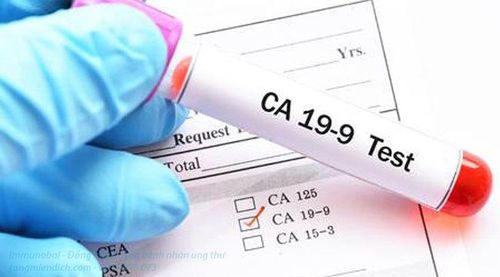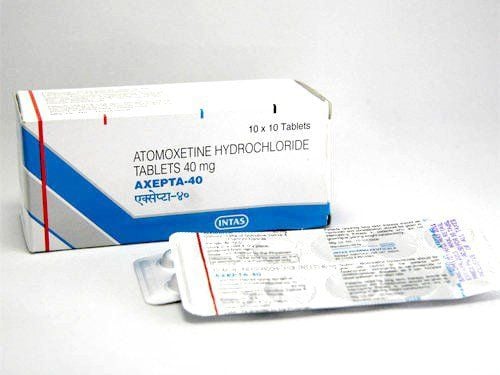This is an automatically translated article.
The article was professionally consulted by Specialist Doctor II Ho Viet Le Diem - General Internal Medicine - Department of Examination & Internal Medicine - Vinmec Central Park International General Hospital.Taking a diabetes history, like any medical history, takes no more than a few minutes, but is vital to a complete physical exam. This is when doctors focus on what makes sense for their patients and long-term prognosis.
1. What is the history of diabetes during the general physical examination?
Diabetes is a fairly common metabolic disorder in the community. The diagnosis is definitely based on testing for high blood glucose levels above the normal range. Therefore, when approaching a person with diabetes for examination, taking the medical history will be much different from other diseases. This means that if the patient has a reason for coming to the doctor, the disease has already manifested and is in the more severe prognostic group than the patient with a history of incidental findings on blood tests. Even information about the history can become a clue to help quickly make a diagnosis in situations where the patient has complications of acute hyperglycemia.Unlike diseases alone, people with a history of diabetes are likely to be associated with other metabolic disorders. Therefore, it is necessary for people with diabetes to have a clear check-up of their medical history, as a basis for accurate diagnosis and to provide appropriate treatment regimens for each patient. especially those with a history or high risk of diabetes or a family history of diabetes.
In most cases, diabetes is detected by blood tests. However, when the patient comes to the clinic at a late stage, has diabetes complications or for type 1 diabetes, the doctor needs to focus on the classic signs of diabetes such as eating a lot, drinking a lot of water, thirst. water a lot, urinating a lot but losing weight. In addition, the doctor also needs to ask about general health and heart health, habits, lifestyle, use of stimulants such as smoking or other risk behaviors.
In addition, the doctor also needs to record a history of diabetes in the family. In case there is one or more blood relatives with diabetes, proactive blood glucose testing periodically is very meaningful in early detection of the disease and long-term prognosis.

Người bệnh cần cung cấp thông tin về tiền sử bệnh, đặc biệt nếu ở trong gia đình tiểu đường có tính di truyền
2. Importance of taking diabetes history
People with diabetes or at risk of diabetes when they go to the doctor and find out that the disease is already in a severe stage, causing complications on the organs. The general health examination to screen the disease only has real meaning when the disease is still completely asymptomatic and the patient himself has not recognized any abnormal signs. At this time, by assessing the overall condition, based on the risk factors if any, the doctor will order a blood sugar screening test and if there is a disease, the patient will soon receive guidance and treatment. positive from the start.For families with inherited diabetes, all members of the same bloodline, right from birth and periodically thereafter, blood sugar tests are very meaningful to help proactively detect the disease. Early detection, avoiding acute events is already a pity.
3. What information should be collected in the history of hereditary diabetes?
3.1 Symptoms Patients with type 2 diabetes often have no symptoms and are diagnosed incidentally during laboratory testing. However, in many cases, patients go to the doctor because of the following symptoms:Gaining or losing weight Drink a lot of water Thirst a lot of water Urinating a lot Muscle weakness, frequent fatigue Blurred vision Skin infections or other infections difficult Healing vague abdominal pain In contrast to type 2 diabetes, the symptoms of type 1 diabetes usually come on quickly. If not noticed, the diagnosis of type 1 diabetes can only be confirmed when the patient is hospitalized in the acute setting. However, if the patient goes for a general check-up and is suspected to have type 1 diabetes, especially if there is a family history, the doctor should also note the same signs as type 2 diabetes. In the past, type 1 diabetes was more common in children than in adults; At this time, the child's physical growth and development needs to be taken care of.

Cảm giác khát nước, uống nhiều nước,.. là một trong số những dấu hiệu cần được khai thác
Type 2 diabetes is often attributed to impaired glucose tolerance under the influence of environmental factors while epidemiologically observed an increased risk of type 2 diabetes in the presence of blood relatives. system has suffered.
3.4 Signs of diabetes complications The purpose of this information is to determine the presence of diabetes complications. These complications only occur many years after the onset of the disease. If the time to detect the disease is short, but the patient already has complications, it is likely that the disease has progressed latently.
Postural hypotension Abdominal bloating, slow diarrhea Diarrhea Constipation Urinary retention Impotence Lower limb claudication Pain numbness of legs
4. Periodic general health check-up at Vinmec

Hệ thống Bệnh viện Đa khoa Quốc tế Vinmec triển khai các gói khám sức khỏe tổng quát và thực hiện các xét nghiệm cận lâm sàng phù hợp với từng đối tượng
Vinmec International General Hospital system deploys general health checkup packages and performs paraclinical tests suitable for each subject. Customers will be directly taken by the doctor to take personal and family medical history, measure blood pressure, body mass index, physical examination, perform screening tests as well as advice in each situation.
With a team of professional, highly qualified and experienced doctors, modern facilities, advanced testing machinery system, the periodic health check-up at Vinmec deserves to be an address. Reliable, world-class quality medical care for everyone and every family.
Doctor Ho Viet Le Diem has more than 10 years working in the Department of Resuscitation - Cardiac Surgery at Cho Ruong Hospital with the position of cardiologist and Open Heart Resuscitation. And has more than 03 years as a General Internal Medicine doctor at Family Medical Practice in Ho Chi Minh City. Currently, Dr. Diem is working at the Internal Medicine Department - Vinmec Central Park International General Hospital.
Please dial HOTLINE for more information or register for an appointment HERE. Download MyVinmec app to make appointments faster and to manage your bookings easily.
SEE MOREHealth Checkup Package Children General Health Checkup Package Standard Comprehensive Health Checkup Package













